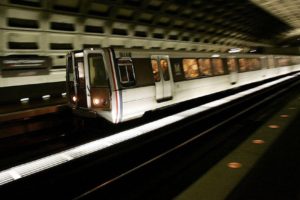Now that Donald Trump has officially taken the reigns of the American presidency, he is already making his mark on the country, signing executive orders on trade (pulling out of the Trans-Pacific Partnership) and freezing federal hiring, among other orders. The Washington Post highlights what he has done in the first day here.
Much talked about has been his focus on transportation. As most Americans know, he has touted a $1 trillion infrastructure plan that will be financed by $140 billion in tax credits to private industry. The plan, proposed in a position paper by his chief economist strategist Peter Navarro, has been deadpanned by a number of economists across the spectrum, who have noted that the plan not only will shortchange the actual money needed to rebuild the country’s infrastructure, but will also push monies to projects that were already going to be built in the first place. Senate Democrats have recently revealed their own $1 trillion infrastructure plan, focusing on federal money that would provide $75 billion for schools, $210 billion for roads and bridges, $10 billion for Veteran Administration hospitals, and $20 billion for broadband installations.
The Democratic plan puts Trump in an interesting spot. Will he lean on his conservative experts who have pushed for the privatization of transportation and a renewed focus on public-private partnerships or will he be open to working with Democrats as their plan goes beyond roads and bridges to encompass hospitals and broadband access?
More than likely, he will follow the suggestions advocated by the conservative Heritage Foundation. His pick for Transportation Secretary, Elaine Chao, who posited for increased privatization of transportation during her hearing, worked for the Heritage Foundation from 2009 – 2016. The organization advocates for increased privatization of transportation and an increased responsibility to states and localities. Some of their suggestions include:
– Removing Federal Involvement in Certain Programs. They advocate to remove federal funding from transit and leave it to the states and local jurisdictions (this would effectively kill the Federal Transit Administration); eliminate the Congestion Mitigation and Air Quality Program, which provides grant funding for transportation projects that contribute to emissions reductions of carbon monoxide, particulate matter, and ozone and its precursors; and cancel the Transportation Alternatives Program, which last year provided $809 million from the Highway Trust Fund to support biking and pedestrian development in cities.
– Reform the National Environmental Policy Act. Heritage believes the Act is a burden to transportation project development by promoting costly transportation delays. The goal is to reform the Act by eliminating greenhouse gas emission analysis, incorporating previous NEPA analyses into similar projects, and focusing the analysis on only major environmental issues. Eventually they want the law repealed.
– Encourage the Use of Public-Private Partnerships. As mentioned, the president emphasized the use of public-private partnerships (P3) to fund infrastructure. Heritage advocates for the use of P3s if complete privatization is not possible. The Foundation believes P3s will help to increase efficiency, lower costs, and provide funding for projects where the Highway Trust Fund is unable to do so. P3s have been used to fund a number projects such as the toll lanes on the Capital Beltway in Northern Virginia and the proposed high-occupancy toll lanes on Interstate 66, also in Northern Virginia. Greater Greater Washington posted a great article describing the P3 model and its measured benefits and drawbacks.
– Ensure Spending from the HTF is Equal to its Revenue. The Highway Trust Fund is supported by federal gas taxes, which are currently around 18 cents/gallon. This amount has not been modified since 1993 (due to Congress’ reluctance to change it) and in turn, outflows from the Fund have exceeded revenues for a number of years. In line with the must-have-a-balanced-budget mantra espoused by a number of conservative politicians, the Foundation wants the HTF to fund only federal highway programs and eliminate other outflows that do not relate to those programs.
– Move Away from Federal Support of Transit-Oriented Development. The Foundation believes the federal support of transit-oriented development – a focus to develop infrastructure, housing, and retail close to transit stations in order to minimizing driving and reduce emissions – is tantamount to government overreach, forcing people to live in high-density areas.
Trump will have his say on transportation as president. Indications seem to point to the Heritage Foundation model crafting his mindset on infrastructure. Whether those reforms, if implemented, actually improve the country’s infrastructure, is another question in itself that will be answered very soon…





Leave a Reply